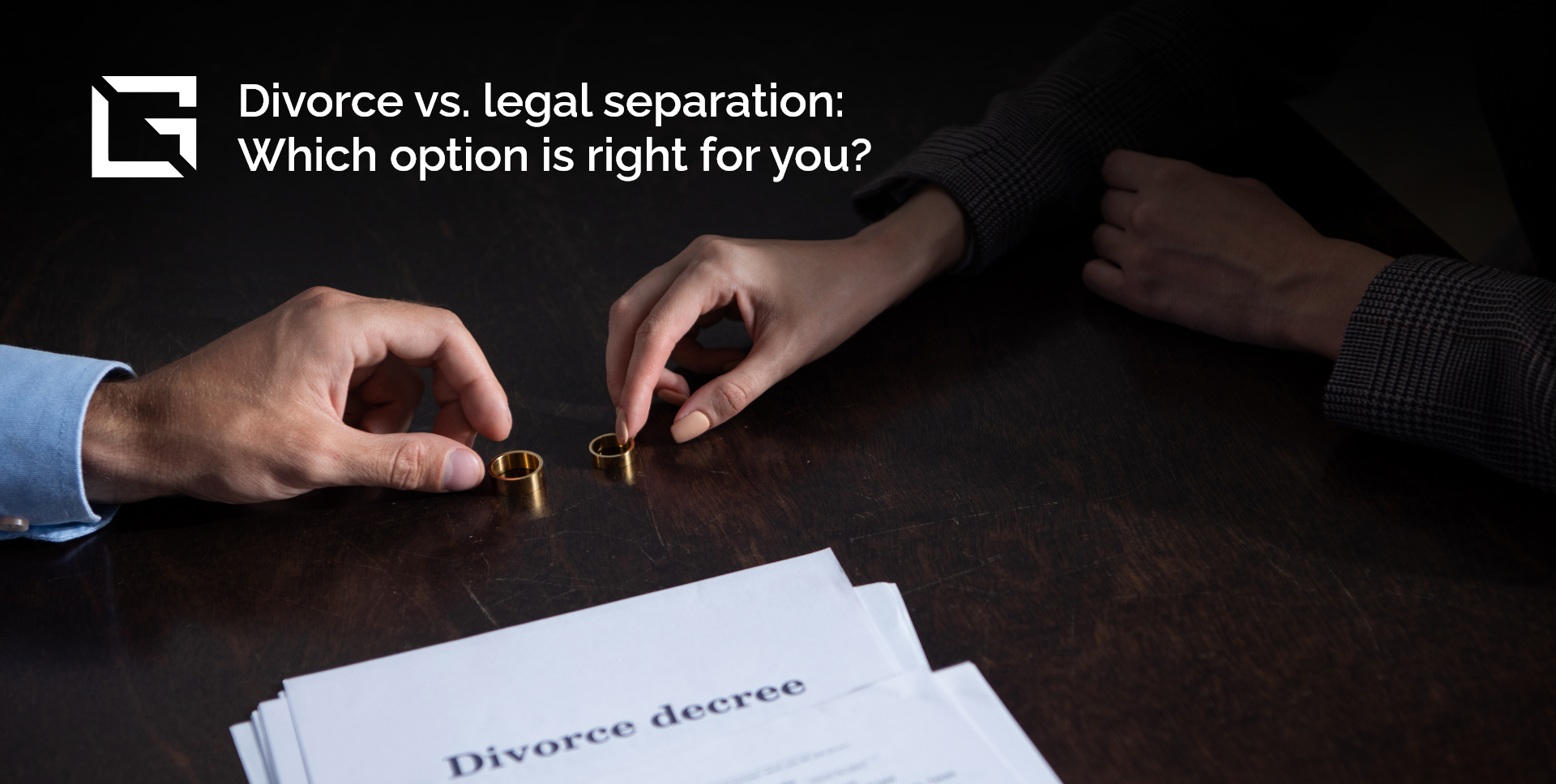Anya and Ben had been married for 15 years. They had built a life together, sharing dreams, laughter, and challenges. But over time, the cracks in their relationship began to widen. Arguments grew more frequent, and the once-sparkling connection seemed to fade. Anya and Ben knew something had to change.
They considered their options: divorce or legal separation. The decision was daunting, filled with uncertainty and fear. They wondered about the emotional toll, the financial implications, and the impact on their children. As they navigated this difficult time, Anya and Ben realized that understanding the differences between divorce and legal separation could help them make the best decision for their family.
When deciding to end a marriage, understanding the differences between divorce and legal separation is crucial. While both options can have significant legal and emotional implications, they offer distinct paths for couples seeking to redefine their relationship status.
Divorce is a legal process that formally terminates a marriage. It involves a court order that severs the legal bond between the spouses. Once finalized, a divorce grants individuals the legal right to remarry.
Legal separation is a less permanent arrangement that allows couples to live apart while maintaining their legal marital status. It involves a legal agreement that outlines the terms of the separation, such as property division, child custody, and spousal support. Unlike divorce, legal separation does not grant individuals the right to remarry.
P.S. – Gibb Law Firm is excited to announce the launch of an advanced new resource dedicated to Civil Litigation! Check out our press release to learn how we aim to streamline legal processes, ensuring that clients receive the most effective and informed representation in their civil cases.
Emotional Impact: Both divorce and legal separation can be emotionally taxing. However, the emotional impact may vary depending on individual circumstances. For some, the finality of divorce can provide a sense of closure, while for others, the ongoing legal and emotional ties of legal separation may be preferable.
Legal Implications:
- Property Division: In both divorce and legal separation, the court will determine how marital property will be divided. This can involve real estate, assets, and debts.
- Child Custody: The court will also make decisions regarding child custody, including physical custody (where the child lives) and legal custody (the right to make important decisions about the child’s life).
- Spousal Support: In some cases, one spouse may be entitled to spousal support (also known as alimony) from the other. The amount and duration of spousal support will depend on various factors, including the length of the marriage, the earning potential of each spouse, and the needs of the parties.
Financial Considerations:
- Tax Implications: Divorce and legal separation can have different tax consequences. It’s essential to consult with a tax professional to understand the potential financial implications of each option.
- Insurance Coverage: Health insurance coverage may change after a divorce or legal separation. Individuals should be aware of their options and ensure they have adequate coverage.
Scenarios for Legal Separation:
- Reconciliation: If couples hope to reconcile their differences, legal separation can provide a temporary separation while they work on their relationship.
- Maintaining Benefits: In some cases, individuals may wish to maintain certain benefits, such as health insurance or retirement plans, that are tied to their marital status.
- Religious Beliefs: Some religions may have specific views on divorce, and legal separation can be a viable option for couples who wish to adhere to those beliefs.
When Divorce May Be Necessary:
- Irreconcilable Differences: If couples have irreconcilable differences that cannot be resolved, divorce may be the most appropriate course of action.
- Abuse: In cases of domestic abuse, divorce is often necessary to protect the safety and well-being of the victim.
- Legal Issues: Certain legal issues, such as criminal charges or immigration concerns, may necessitate a divorce.
Ultimately, the decision of whether to pursue divorce or legal separation is a personal one that should be made after careful consideration. Consulting with an experienced family law attorney like Gibb Law Firm can provide valuable guidance and help individuals navigate the complexities of this process.
Families can navigate this challenging time with greater clarity and purpose by understanding the legal process, seeking expert legal guidance from Gibb Law, and actively participating in every step of the journey. Remember, you are not alone. Contact Gibb Law, a qualified Utah family law attorney, for the compassionate support and unwavering dedication that you need at this time.
Disclaimer: This article is for informational purposes only and does not constitute legal advice. Please contact us to discuss the specifics of your situation.



